Revert | Tablet | 10 pcs
৳ 23.00
Brand Name: Revert Tablet
Generic: Cinnarizine + Dimenhydrinate
20 mg+40 mg
Manufacturer: Incepta Pharmaceuticals Ltd.
Unit Price: ৳ 2.30 (10 x 10: ৳ 230.00)
Strip Price: ৳ 23.00
Indications
Cerebral circulatory disorders:
- Prophylaxis and maintenance therapy for symptoms of cerebral vascular spasms and arteriosclerosis such as : dizziness, ear buzzing (tinnitus), vascular headache, unsociability and irritability, fatigue, sleep rhythm disorders such as premature awakening, involutional depressions, loss of memory and lack of concentration, incontinence and other disorders due to aging.
- Sequelae of cerebral and cranial trauma.
- Postapoplectic disorders.
- Migraine.
Peripheral circulatory disorders: Prophylaxis and maintenance therapy for symptoms of vascular spasms and arteriosclerosis (obliterating arteritis, thromboangitis obliterans, Raynaud’s disease, diabetes, acrocyanosis pernio, etc.) such as intermittent claudication, trophic disturbances, pregangrene, trophic and varicose ulcers, paraesthesia, nocturnal cramps, cold extremities.
Disorders of balance:
- Prophylaxis and maintenance therapy for symptoms of labyrinthine arteriosclerosis; vestibular irritability;Meniere’s syndrome such as vertigo, dizziness, giddiness, syncopal attacks, tinnitus, nystagmus, nausea and vomiting.
- Prophylaxis of motion sickness.
Therapeutic Class
Pharmacology
Cinnarizine provides faster relief of various symptoms of cerebral and peripheral circulation disorders and prevents attacks of vascular headache such as migraine. Cinnarizine normalizes cerebral circulation time and curves and improves cerebral irrigation in patients suffering from cerebral circulation disorders. Cinnarizine normalizes arterial pulsations in patients suffering from vasospastic disorders (Raynaud’s disease). Cinnarizine significantly increases the rate of inflow of pulsations and the blood flow in the most affected limbs as well as the walking distance of patients suffering from intermittent claudication. Cinnarizine reduces the healing time of crural ulcers. Cinnarizine reduces or eliminates symptoms of vestibular disturbances like, vertigo, tinnitus and autonomic manifestations (nausea, vomiting, pallor and cold extremities) and reduces or prevents future episodes.
Dimenhydrinate acts as antihistamine with anti-cholinergic properties.The substance exhibits the anti-emetic & anti vertigo effects through influencing the chemoreceptor trigger zone.
Dosage & Administration
Usual adult dose: 1 tablet three times daily to be taken with liquid after meal or as advised by the physician.
Children (under the age of 18): Not recommended.
Interaction
Contraindications
Side Effects
Pregnancy & Lactation
Storage Conditions
| Generic Name | Cinnarizine + Dimenhydrinate |
|---|---|
| Size | 20 mg+40 mg |
Only logged in customers who have purchased this product may leave a review.

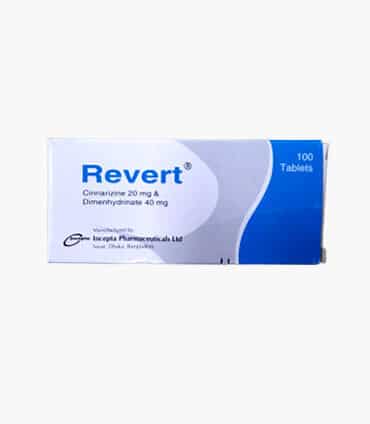

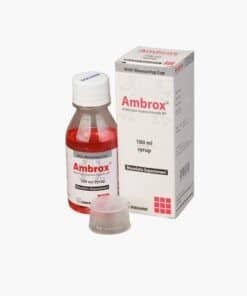



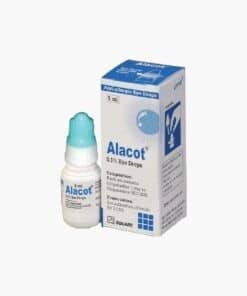
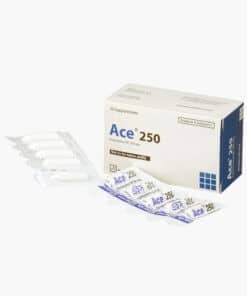
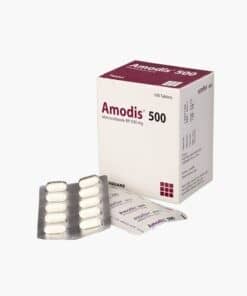

Reviews
There are no reviews yet.